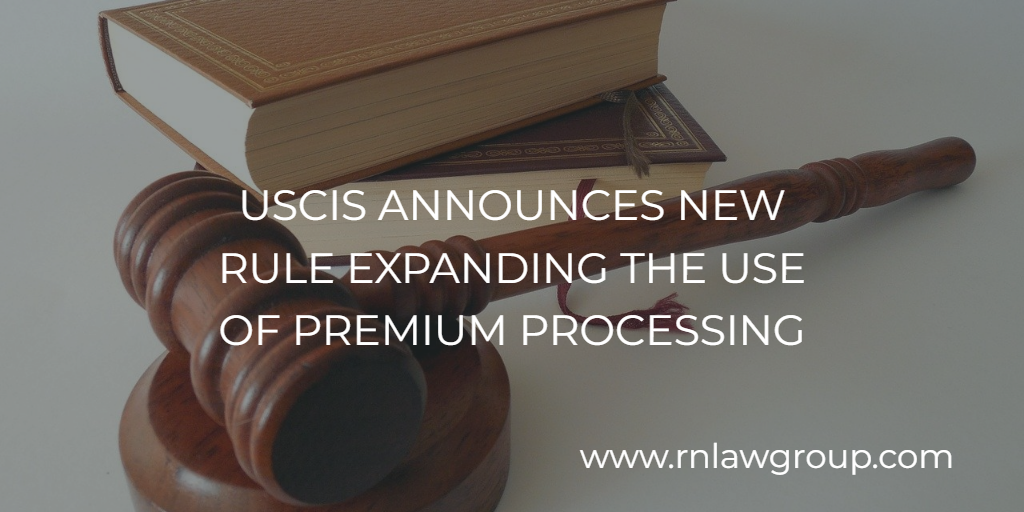
USCIS ANNOUNCES NEW RULE EXPANDING THE USE OF PREMIUM PROCESSING
The United States Citizenship and Immigration Services issued a new rule today amending their previous DHS premium processing regulations. This new rule amends previous premium processing regulations by updating the regulations to include the fees established by the USCIS Stabilization Act for immigration benefit requests that were designated for premium processing on August 1, 2020, and establishing new fees and processing timeframes consistent with section 4102(b) of the USCIS Stabilization Act.
Premium processing is an expedited adjudication service provided by USCIS for certain employment based petitioners that generally guaranteed that a petition would receive a faster turnaround time on their filing. An individual could apply for Premium Processing by filing an I-907, Request for Premium Processing Service and paying the associated fee and would typically see a wait time of around 15 days. This is in stark contrast to the vast wait time times some visa categories would normally be subjected to without the use of expedited processing.
Prior to the establishment of the USCIS Stabilization Act, USCIS only provided expedited processing for designated classifications that fell underneath filing guidelines of Form I-129 and Form I-140. Under the new rule, however, USCIS plans to begin expanding the expedited processing services to individuals filing two additional forms:
- Form I-539, Application to Extend/Change Nonimmigrant Status
- Form I-765, Application for Employment Authorization
In addition, USCIS also plans to begin expanding the expedited service to previously unqualified individuals under Form I-140, Immigrant Petition for Alien Worker. The new classifications that would now be eligible for premium processing are as follows:
- EB-1, Multinational executives and managers
- EB-2, Members of professions with advanced degrees or exceptional ability seeking a National Interest Waiver
Currently, the Department of Homeland Security estimates that it will not be able to expand premium processing to the additional categories of Forms I-539 and I-765 until at least Fiscal Year 2025 due to the possibility that revenues from premium processing do not yet exist to cover any potential costs associated with the expansion of the service to these additional categories without adversely affecting the processing times of other immigration benefit requests. USCIS, does however, plan to begin to implement strategies in Fiscal Year 2022 for making premium processing available for the noted forms when the time comes.
Reddy Neumann Brown PC will continue to provide updates as additional information is received from USCIS about the upcoming premium processing changes.
